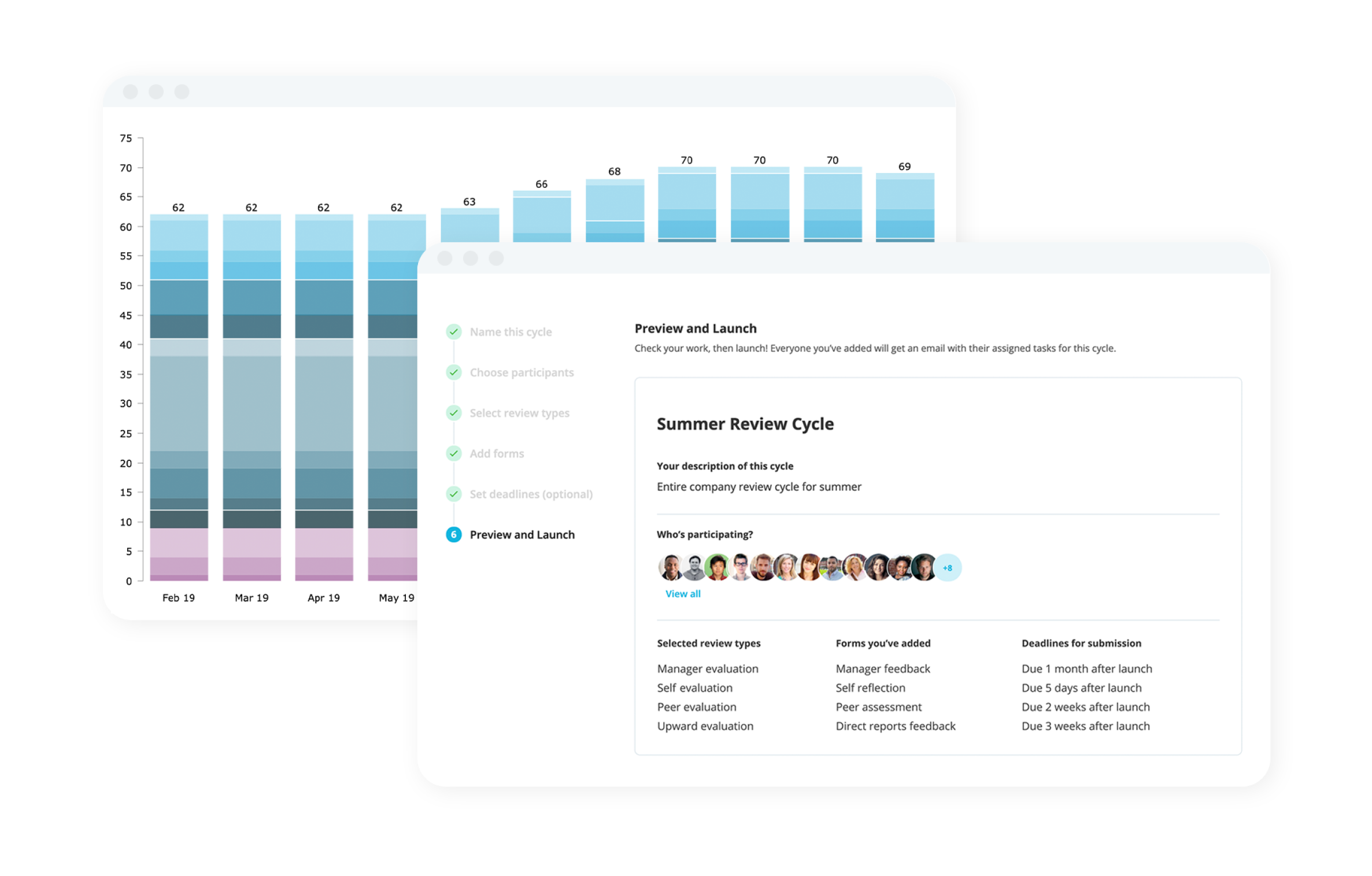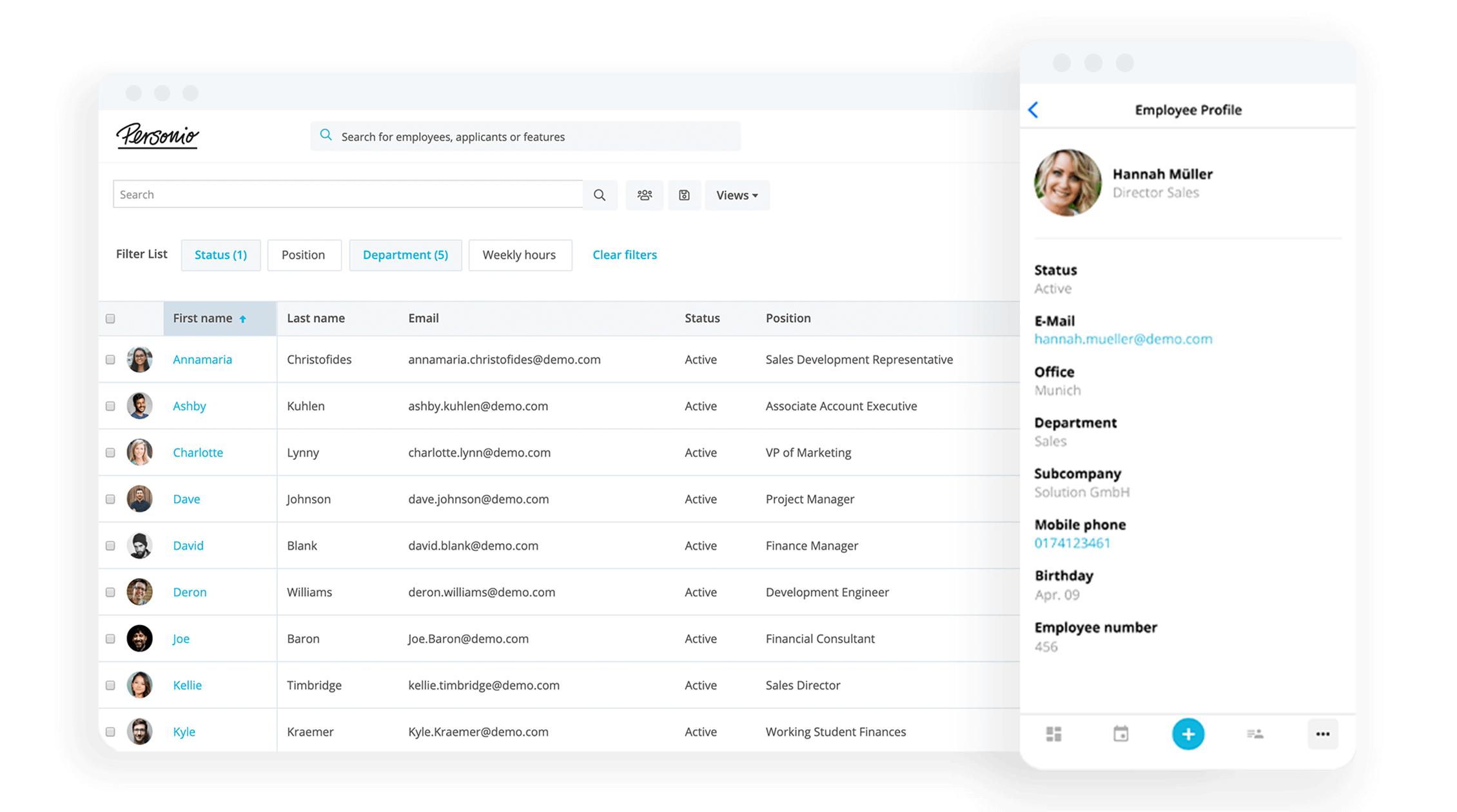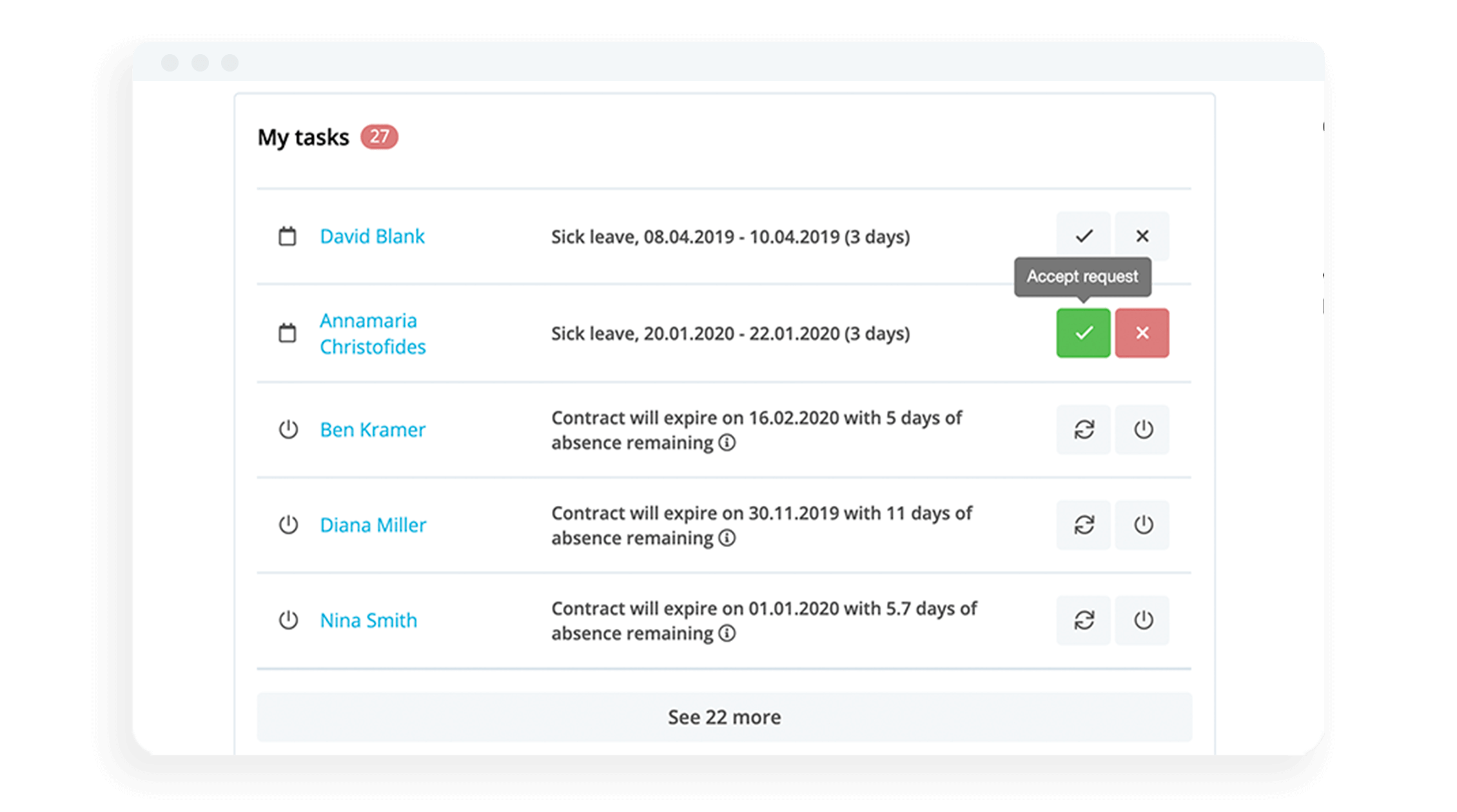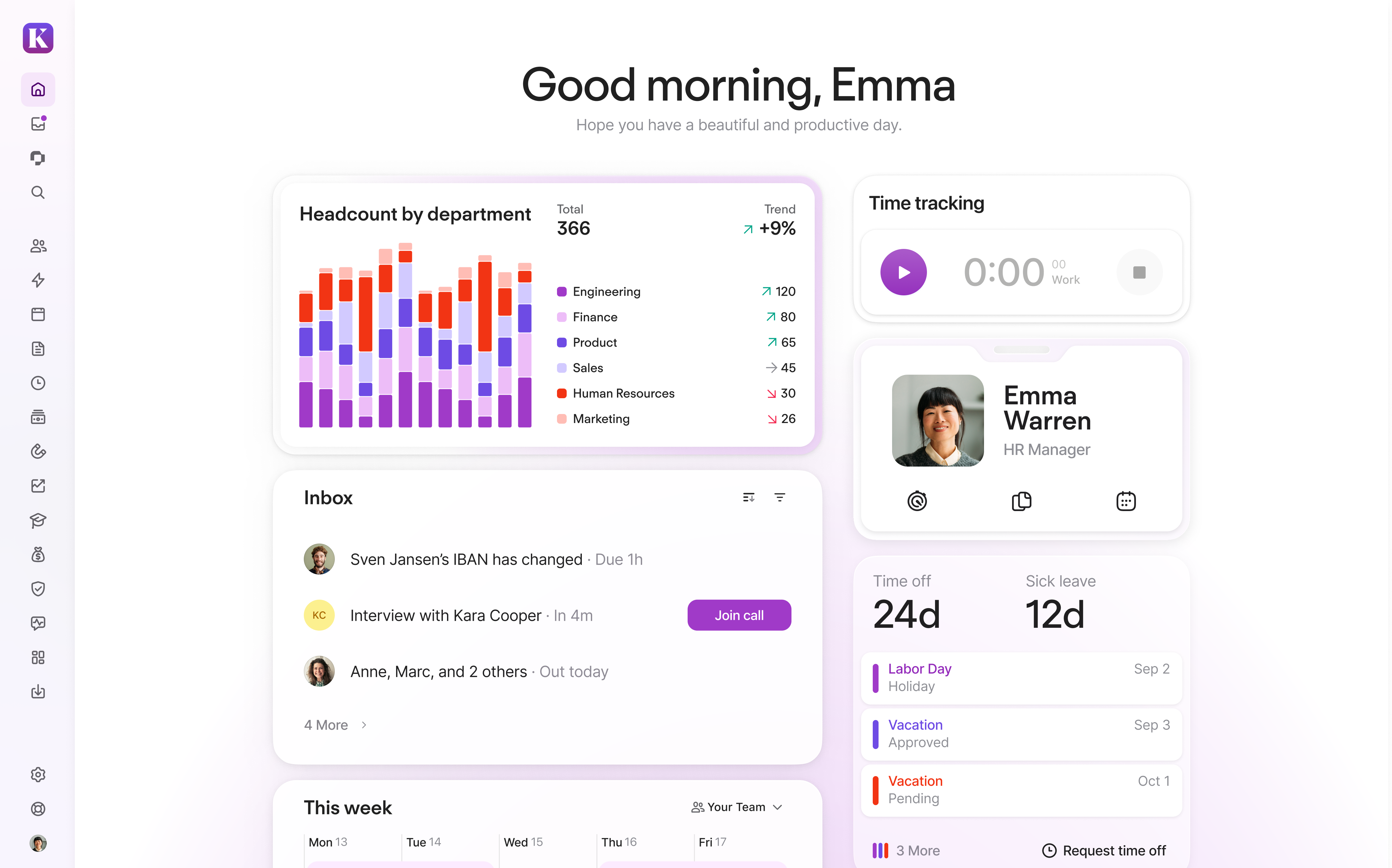UK employment law: Important changes for 2024

Employment law for UK companies can already feel like daunting subject matter. While there is much to unpack, we’ve focused our efforts on helping organisations in the UK gain an idea of where things stand – and how they are changing.
For a quick lay of the land, as well as upcoming UK employment law changes for 2024 (and beyond), we’ve prepared this article for you and your teams.
We take employee data seriously. Learn more about Personio’s HR solution today.What are the main UK employment laws?
Much of employment law in the UK is governed by The Employment Rights Act of 1996. This set in motion a compendium of rights which govern the legal limitations of the working relationship between organisations and their employees.
These laws often cover a wide breadth of rights, including those around:
Dismissal definition and process
Parental leave
Redundancy
Over the years, the UK has additionally rolled out various types of legislation which continue to build and augment how we work. This includes The Equality Act 2010, The National Minimum Wage Act 1998, Data Protection Act 2018 and many more.
Employment law is crucial as a way to protect both organisations and their employees. This is to ensure that employees are not mistreated, and that various issues or processes have meaningful, legislated solutions in place.
Which areas does UK employment law cover?
While this is far from an exhaustive list, we wanted to uncover some of the main areas that your HR team may encounter while helping run your organisation:
The unfair treatment on the basis of age, race, religion, gender or sexual orientation (otherwise known as protected characteristics). | |
Dismissal | The rules governing the process of dismissing an employee from their job (without running the risk of performing an unfair dismissal). |
Contracts of employment | Providing written contracts that respect the rights of prospective employees (how much they are paid, how much they are asked to work, where they work, etc.). |
Holiday and absences | Ensuring that employees have adequate amounts of leave and are not penalised for taking leave in which they are entitled. |
Redundancy | In the event that your company has to pursue the path of redundancy, this is done in a way that maintains respect and decency toward departing employees. |
Pay | Matters of pay, specifically with regards to the National Minimum Wage or National Living Wage, are extremely important from a legal perspective. |
Manage processes more than paperwork

Personio makes your HR work a dream. A secure, legally-compliant foundation to build out your HR processes at scale. Make it work for your business today.
Great HR work starts hereChanges to UK employment law in 2024
For the year ahead, we’ve rounded up some of the most important changes in the space of employment law in the UK to help your organisation. Here is what you need to know…
Especially relevant for those managing a return to the office or a hybrid workforce, but new flexible working laws will mean that workers in the UK will have more flexibility over where and when they work. This includes:
Employees can request flexible working from their first day of employment.
These changes can be with respect to part-time, term-time, flexitime, compressed hours and varied working locations.
Employers will be required to explain their decision to deny any request related to flexible working, and so so within a two-month timeframe.
Things will change for employees who have caring responsibilities. This will now become a day-one right for employees. For those caring for a spouse, civil partner, child, parent or other dependant, this means:
They may be able to take at least one week per year, unpaid leave.
Employers cannot deny the request, but they can reasonably postpone it.
There are already protections in place for employees on maternity leave, shared parental leave or adoption leave from redundancy. The change in law will extend this right to those who are pregnant or recently returned from parental leave.
This legislation will give workers the right to a more predictable working pattern (including those on fixed-term contracts less than 12 months). This is quite similar to the idea of flexible working requests, where employers may also refuse these requests on certain grounds. .
Paternity leave
Changes to paternity leave mean that the two weeks of leave may be taken in non-consecutive blocks of one week, within 52 weeks of birth. This is in contrast to the current 56-day rule.
Holiday pay
There will be new rules when it comes to calculating holiday entitlement for UK employees, as well as an option to pay rolled-up holiday pay. This applies to part-year workers and irregular hours workers.
Workers may not be able to carry forward up to four weeks of untaken annual leave at the end of a holiday year – if sick leave prevented them, weren’t given the opportunity to take it, or were not informed that it would disappear. Depending on the conditions, the lifetime of the accrued holiday varies.
And what other changes can we expect, post-election?
The Labour Party has made a “cast iron commitment” to introducing an Employment Rights Bill within their first 100 days of power, the details of which are set to be released in early October 2024.
How can HR better manage changing employment laws?

The truth of the matter is that the laws governing employment are often in flux. For HR teams, that can often mean making hasty changes and preparations to ensure that they remain fully compliant and not in breach of legislation. That can be tricky.
To keep your organisation, and your people, secure, HR teams should leverage an HR software system that can do the following:
Store your most important people data (contracts, payslips, etc.)
Generate reports on that information
Allow employees to make changes to keep things up to date
Document processes and run them consistently
The most important part is to introduce a system that centralises your data, keeps it secure and then creates processes that maintain equity and equality in all of your HR processes.
Personio helps busy SMEs keep up

When it comes to changing legislation and UK employment laws, Personio knows all about the value of your data. We’ve crafted a secure, compliant and reliable HR software for UK SMEs that can ensure all of your employment data is safe from harm and at your fingertips.
For busy HR teams simply trying to keep up, this can give them back the time while also offering a layer of reliability they badly need. Additionally, our software is designed to grow with your team to handle any host of matters related to your people.
Recruiting, onboarding, performance or offboarding, speak with an expert today to see how we can take your HR work to new heights. Or, start a free trial right now.
Disclaimer
Disclaimer: We would like to inform you that the contents of our website (including any legal contributions) are for non-binding informational purposes only and does not in any way constitute legal advice. The content of this information cannot and is not intended to replace individual and binding legal advice from e.g. a lawyer that addresses your specific situation. In this respect, all information provided is without guarantee of correctness, completeness and up-to-dateness.
